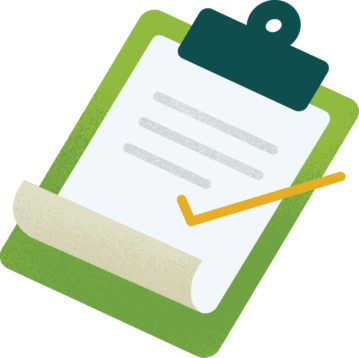
Even ignoring the unique pressures of a pandemic, we all have a lot going on. We balance parental duties with professional demands. We navigate school for our kids – whether at home or in the classroom. We have to pay mortgages, put food on the table, keep the lights on and, hopefully, nest cash away for an eventual retirement. And in the few hours left we’re supposed to find the time to keep ourselves healthy – in both body and mind.
It can be overwhelming.
In response, we seek the quick cure. Dietary supplements. Starbucks for a morning jolt. The latest self-help book on Oprah’s Book Club or the podcast our gym buddy mentioned. We decompress with a glass of wine every night. In short, using external solutions to solve internal problems.
Many neuroscientists claim change doesn’t come from miracle pills or internet life gurus. Instead, they offer a simple credo to use every day:
Be thankful.
The Power of Gratitude
Look, we know — it’s cliché to suggest something so obvious.
That’s not to suggest you’re ungrateful. Far from it. Instead, the notion poses a way to build concrete routines to improve your resilience in everyday life.
The power of gratitude isn’t magic. This isn’t motivational “fake-it-until-you-make-it” baloney. It is backed by science. And for the experts studying the inner workings of the brain, it has been a key research topic for decades.
“Gratitude gives us the power to rewire how our brain operates,” says Dr. Jeff Snell, QLI’s Director of Neuropsychology Services. “If you want to be able to feel more pride, have greater feelings of trust in yourself and in others, and build deeper relationships, practices of gratitude serve as a fundamental inroad.”
How can gratitude do all that?
To describe it, we have to take a brief look into your brain.
The Science Behind Gratitude
Every thought we experience — memories, perceptions, motions — resides within the brain’s neural networks. These networks house neurons, the cells responsible for sending messages between the brain and every other part of the human body.
Neurons have the unique ability to improve efficiency through repetition. Neural pathways responding to the same demand thousands of times over get better at initiating and delivering that response. Consider walking, for example. When a toddler takes its first steps, the steps are unsteady — in part because the neurons are just beginning to deliver a complex message from the brain to the muscles involved. But over time, as the message is retransmitted and the action is performed countless times over, the toddler becomes more stable.
Even better — the action becomes automatic. Most likely, you don’t think about walking while you do it. Your neurons have become so efficient that your brain can run “walking.exe” as a background activity.
The brain controls emotional function the same way. Chemical transmissions send signals that manifest as emotions. Chemicals like dopamine (a key player in the brain’s reward system), oxytocin (most associated with social feelings of love and belonging), and serotonin (often connected to the sensation we call pride) go hand in hand with positive experiences of joy and long-term contentment.
But these chemicals also kickstart a larger domino effect of activity.
“Beyond their ability to cause you to feel pleasure or accomplishment, the networks sending neurotransmitters have direct links to other parts of the brain—the parts that govern memory, for instance, or decision-making,” says Dr. Snell. “This allows us to consciously act in a manner that’s likely to repeat positive experiences.”
How Can Gratitude Improve Your Life?
Repetition affects emotional function. Practicing cognitive exercises can mold your emotional response, helping rewire your brain to readily transmit chemicals that make you happy — even in stressful situations.
And practices of gratitude, it turns out, are those cognitive exercises.
“Gratitude is a conscious way to work the brain regions associated with reward and accomplishment,” says Dr. Snell. “By activating those regions, you’re increasing their neural connections. With repetition, they become activated automatically.”
Neuroscientists have charted the results. Not only do repeated acts of gratitude boost the production of reward-center neurotransmitters, they create a host of quantifiable psychological and physical effects. Reduced anxiety, increased problem-solving capability, better stress management, even better sleep and more resilient immune system responses. The benefits of gratitude are numerous.
How to Get Started with Gratitude
Ready to begin? Here is what you need to know to build a routine of gratitude.

Why do you want to learn to be more grateful? Maybe your reason is personal health. Maybe you want to be a confident problem-solver, someone who bats away stress like Hank Aaron, or a strong role-model for your children. Find your intrinsic motivation and lasso your pursuit of gratitude to it.

Surround yourself with coaches who provide meaningful feedback and supporters who reinforce your emerging routines. Progress and change requires the right support at the right time — so use your resources!




Repetition is the support beam holding up the entire structure. Without it, your skills won’t improve and your neural networks will never begin making gratitude an automatic function.
Stress is everywhere, in everything. Life has hardships, regardless of your circumstances.
But it also has beauty if you look for it. And there are always ways to be grateful. The science is here to support it.
So be thankful. It might literally change your life.
Categories: Brain Health, Learning, Neuroplasticity, Skill Acquisition
